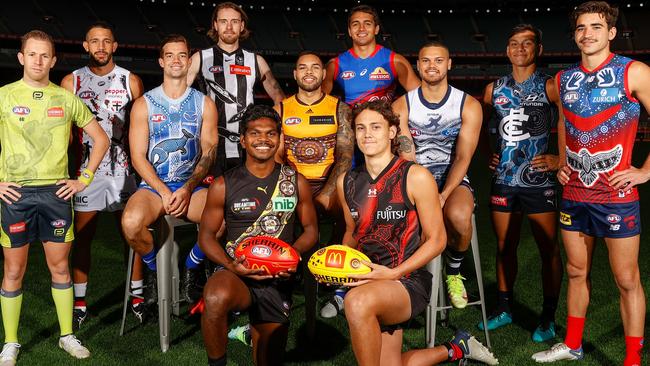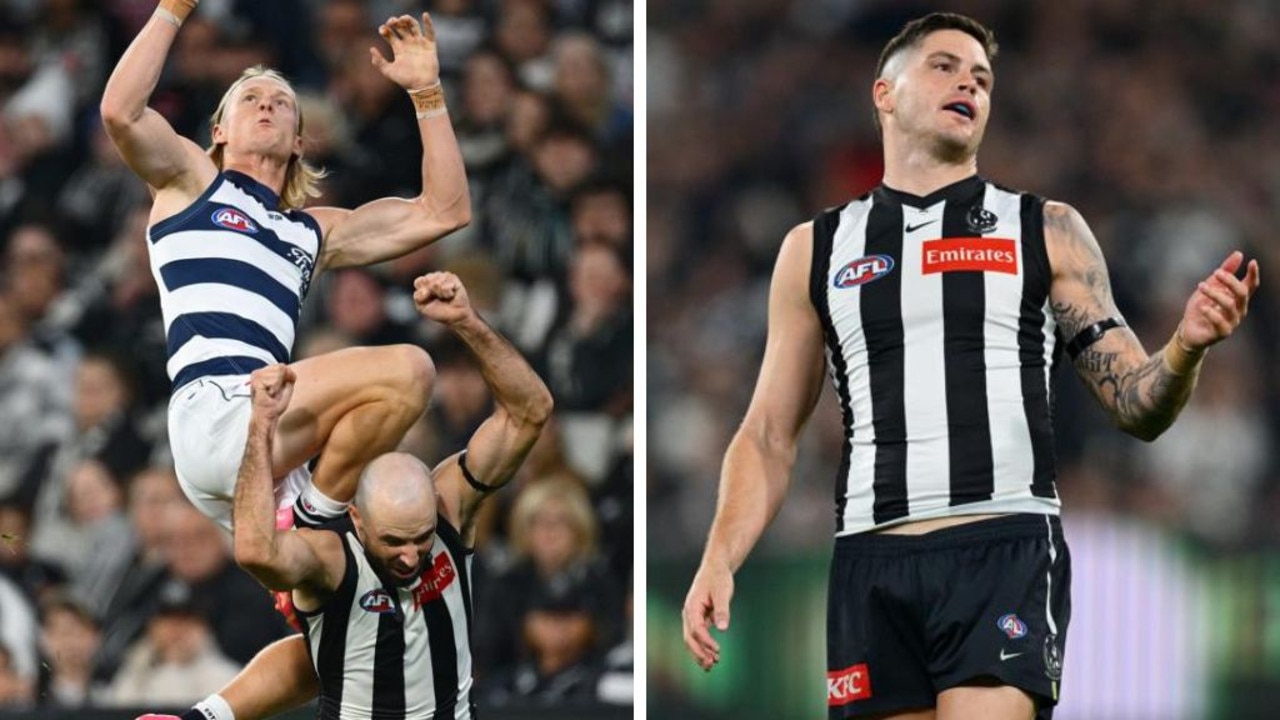AFL clubs moved to recognise the pain Australia Day celebrations cause First Nations people
While the AFL lauded those volunteers given Australia Day honours, several clubs declared January 26 was no day for celebration.

AFL
Don't miss out on the headlines from AFL. Followed categories will be added to My News.
North Melbourne’s indigenous co-captain Jy Simpkin declared January 26 was “not a day for celebration” as AFL clubs united in a call for people to educate themselves about Australia Day and its significance to different people.
It comes after both Australian cricket captain Pat Cummins and his vice-captain Steve Smith both called for the date of Australia Day celebrations to be changed, a view matched by Port Adelaide with a statement declaring “the board, staff and players of the Port Adelaide Football club support changing the date.”
While the AFL congratulated a raft of sport-wide volunteers recognised in the Australia Day honours, Simpkin, with the support of his club and its board, made his view clear.
“January 26 isn’t a day for celebration but an opportunity for everyone to continue to ask questions and learn about Australia’s shared history, the strength and resilience of Aboriginal and Torres Strait Island people and our culture,” Simpkin, a proud Yorta Yorta man, said.
A statement from North Melbourne and senior leaders said they “recognise the pain and sadness many First Nations Peoples and the broader community may be experiencing at this time”.
“We encourage listening, understanding and reflection of our nation’s shared past. We will be stronger together when we can celebrate the history of the country we call home on a date that unites us,” the statement said.
We recognise the pain and sadness many First Nations Peoples and the broader community may be experiencing at this time.
— North Melbourne FC (@NMFCOfficial) January 25, 2024
We will be stronger together when we can celebrate the history of the country we call home, on a date that unites us.
ðŸ“: https://t.co/ocsBrSPaFepic.twitter.com/F1stKQkLA9
— Carlton FC (@CarltonFC) January 25, 2024
Fremantle Dockers staff and players this week had information sessions to understand the “significance and potential implications that the date January 26, 1788, has for some Aboriginal and Torres Strait Islander people”.
Geelong confirmed the club would “stand in solidarity with First Nations peoples” but also encouraged people to “listen deeply and reflect”.
Port Adelaide also conceded January 26 was a day of “immense sadness and sorrow for many in the community” and supported a date change so “All Australians can celebrate our nation on a date everyone can feel proud, unified and united”.
A statement from Carlton said January 26 “contributed to the upheaval of First Nations people and their lands” and called for “respectful discussion” to find a way to move forward in unity.
That was a view echoed y clubs including Hawthorn, Collingwood and West Coast, all pointing to the need for greater understanding of the impact January 26 celebrations have on First Nations peoples with Essendon calling for a path to “meaningful reconciliation”.
All AFL clubs, and the league, advocated for a “Yes” vote in the failed referendum for an Indigenous Voice to Parliament.
— Port Adelaide FC (@PAFC) January 25, 2024
Always was, always will be. pic.twitter.com/wWH9xRHRJT
— St Kilda FC (@stkildafc) January 25, 2024
— West Coast Eagles (@WestCoastEagles) January 25, 2024
— Hawthorn FC (@HawthornFC) January 25, 2024
— Essendon FC (@essendonfc) January 25, 2024
While the clubs made their views on January 26 clear, AFL chairman Richard Goyder congratulated the sport’s volunteers who were recognised in Australia Day Awards, including Paul Briggs, the chair of the league’s Indigenous Advisory Council since its inception, for his service to the Indigenous community and sporting organisations.
“The success of Australian football around the country is built on the service of volunteers, who give their time for others,” Goyder said.
“I particularly want to call out today those people at the grassroots of our game who have been recognised for three, four and five decades of selfless contribution to their local football club and to all those people who give their time to help the growth of our game.
Originally published as AFL clubs moved to recognise the pain Australia Day celebrations cause First Nations people


